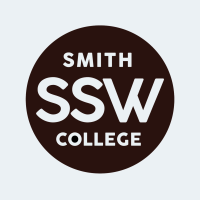In-person Seminar
Instructor: Susan Bliss, Ph.D., LCSW (Group A) and Katelin Lewis-Kulin, M.S.W. '00, LICSW (Group B)
Level: Intermediate
CE/Contact Hours: 9
Target Audience: Social workers and other social service providers who are currently providing clinical supervision and have supervised for at least three years
Course Delivery Method, Format and Instructor Interaction: Live in-person seminar
The seminar provides an opportunity for participants to use concepts and language from the morning didactic sessions to explore their own supervisory experience. Participants’ supervisory cases, presented in written form, provide the content to be studied in the afternoon practicum. Class process includes a careful reading of case materials and their accompanying process recordings, attention to questions raised by the presenter and other participants, surfacing and clarification of themes and learning issues. Through engaged class discussion a more grounded, visceral understanding of the complex concepts introduced in the morning sessions and their utility in actual supervisory practice emerges.
Learning Objectives:
- Describe how to apply concepts and language from earlier didactic sessions to name and understand participants’ experiences in supervision
- Explain the impact of organizational and social context, social identity, boundaries and power on participant’s supervisory practice
- Describe how supervisees learn in the supervisory relationship and how to use themselves as supervisors to facilitate learning and development
- Identify the influence of unconscious processes as these emerge in the supervisory relationships under consideration
- Articulate how to assess learning needs, identify learning challenges, scaffold the learning process, and provide and receive “critical feedback”
- Articulate how to intentionally use the many supervisory skills they bring to the program in their future practice
Outline:
Outline by session – 2 hours per day with a 10 minute break
Because the content of each session is determined by participant’s cases it is not possible to specify what material will be covered in each session until these cases have been received and reviewed. There will be a 10 minute break in the middle. Cases will be assigned, one or two per class, based on their relationship to one another and the content of the morning sessions. The case schedule will be presented at the first class. The case schedule will be presented at the first class. The case assignment for the first class will be available on Moodle to participants to allow them to prepare for the first session.

Susan Bliss, Ph.D., LCSW

Katelin Lewis-Kulin, M.S.W. '00
To receive a CE certificate, you must attend the entirety of the seminar. Partial credit will not be awarded to those who attend only a portion of the seminar. For live, in-person seminars, participants must sign in and out of the session and complete an evaluation. A link to the online evaluation will be emailed to participants within 24 hours of the conclusion of the course. It is attendee’s responsibility to contact their state licensing board/certification boards to determine eligibility to meet continuing education requirements.
How Will a CE Certificate Be Awarded?
Upon completing the evaluation for the in-person seminar, participants will be emailed their online certificate within 30 days of seminar completion. Participants should save and/or print the certificate upon receipt for their records. Receiving the CE certificate is contingent on completion of the evaluation and signing in and out of the seminar.
